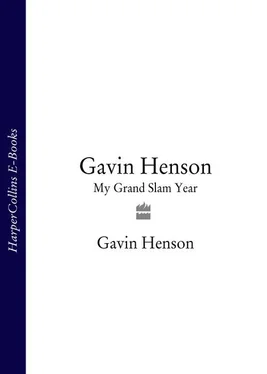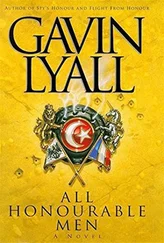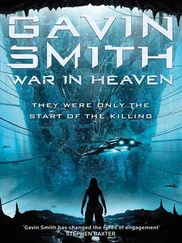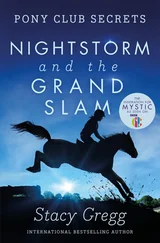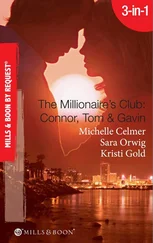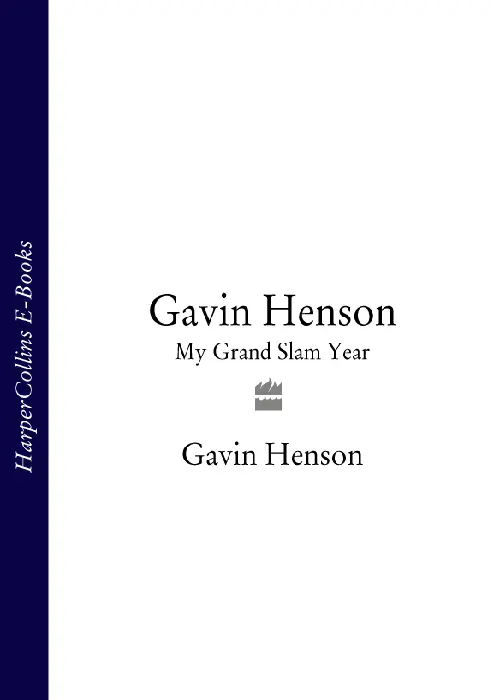
GAVIN HENSON
MY GRAND SIAM YEAR
Gavin Hensonwith Graham Thomas

Cover
Title Page GAVIN HENSON MY GRAND SIAM YEAR Gavin Henson with Graham Thomas
CHAPTER ONE Can I Kick It?
CHAPTER TWO Away Days
CHAPTER THREE Get Lost, Gav
CHAPTER FOUR Slamming It
CHAPTER FIVE Rat Attack
CHAPTER SIX Ball Boy
CHAPTER SEVEN Up On The Roof
Images
CHAPTER EIGHT You’re Not Going
CHAPTER NINE A Fresh Start
CHAPTER TEN Elvis and the Ospreys
CHAPTER ELEVEN Clocking Off
CHAPTER TWELVE Chip Alley
Images
CHAPTER THIRTEEN Routine Entertainment
CHAPTER FOURTEEN Celtic Kings
CHAPTER FIFTEEN How Do You Want To Be Remembered?
CHAPTER SIXTEEN ‘Stephen on for Gavin’
CHAPTER SEVENTEEN The Shadow
CHAPTER EIGHTEEN All Blacked Out
CHAPTER NINETEEN Crazy Chick
List of Illustrations
Index
Acknowledgements
Copyright
About the Publisher
CHAPTER ONE Can I Kick It?
As soon as the referee blew his whistle for a penalty, I knew I could kick it. Forty-four metres out from the posts and two or three in from the touchline, it was my kind of distance. Go a bit closer and everyone watching expects the kicker to score, rather than hopes. Sometimes that expectation can get to the kicker. From 44 metres out, and by the touchline, I could sense the hope of 70,000 people in the stadium and the millions more watching on TV, but I think the only person who truly expected it to go over was me.
Firstly, though, I had to be told to give it a go. Stephen Jones was our first choice goal-kicker and took all the short-range kicks. That’s how we had practised all week in the build-up to the match. He took short and medium-range kicks and I practised long ones. This was 44 metres and at an angle, but it had to be out of Stephen’s range for it to be in mine. I looked across and saw Stephen signal to Gareth Thomas that I should have it. There were four minutes left on the clock and this was very likely to be our last chance to win the game. But Stephen didn’t hesitate. ‘Give it to Gav,’ he said and walked off. The skipper backed up the decision and then it was down to me.
After the match, after we had beaten England and were back in the dressing room, Mike Ruddock, our coach, told me he couldn’t watch. ‘Why not? I knew I was going to kick it.’ And it wasn’t bravado. I did. I really did. I had spent all week practising kicks from that kind of distance and when I concentrated, and got all my preparation right, they had all gone over. All I had to do was repeat it. That’s what I was thinking as I was lining up the ball on the tee. I wasn’t thinking about the match, or the result, or the time that was left. My mind was clear of all that stuff. Believe in your technique … don’t hit it too hard … you’ve got the legs … and keep your head down.
To be honest, I did have one small seed of doubt. But that was nothing to do with me or my abilities. It was the pitch. The Millennium Stadium is an incredible arena, but the pitch can sometimes be a problem. Because precious little sunlight gets to it, it is regularly re-laid and sometimes it can cut up badly under pressure. Put it under a lot of pressure – like 16 huge guys scrummaging against each other in a Wales-England Six Nations match – and it can cut up very badly as it did that day. All over the field there were mounds of turf where the pitch had been churned up by the twisting force of 16 sets of studs. What about one set of studs? When it really mattered? In the back of my mind was the fear of slipping if that top inch of turf gave way. If my non-kicking foot slipped just before impact then the ball would go off line. Remember David Beckham’s missed penalty for England in Euro 2004? Stay nice and light on the left foot … be flexible … strike it down the middle.
There had been a roar when Steve Walsh awarded the penalty, but now there was just silence. I didn’t mind that as it helped clear my head. I stepped back, kept my rhythm through the run-up, and struck it just as sweetly as every other kick I’d put over on the training ground. I didn’t need to wait to see it go over, I knew it was there from the moment I struck it. I always do. It must be like that if you’re a tournament golfer and you hit a putt you’ve practised a thousand times. You know from the connection, just from the feel of the ball as it leaves the putter or your foot, whether or not it’s going through the posts. Normally, I have a quick look just to convince myself it’s on line and then I run back before the touch judges signal, while the ball is still travelling towards the posts. Only if it’s a windy day, and I don’t trust the breeze not to blow the kick off line, will I keep looking until it’s through. There was no wind in the Millennium Stadium that day as the roof was closed. It was blowing a gale outside but under the protection of all that steel the wind was never a factor. From the moment I struck it I knew I’d scored. I turned away, threw the tee back to the touchline, and raised my finger in the air. Thanks for coming.
A few of the Welsh players shouted and screamed but I can’t remember what was said. I was in my own little world. But I snapped out of it when someone demanded we re-focus and win the ball straight from the restart. We did better than that, we won another penalty and were able to pump the ball back into their half. It was 11–9 to us and England were running out of time. John Yapp made a burst and I tried a drop goal but it was charged down. A 14–9 lead would have given us a little more breathing space, but there was no time for England to get back into range and win it with a drop goal of their own or another penalty. Time had run out for England. This was our time.
There was a huge amount of pressure on us going into that game. We felt confident we could win it, but the circumstances had changed from Wales-England matches in previous years. We still weren’t the bookies’ favourites but the Welsh public certainly expected us to win. You could sense that from talking to fans and it was reflected in the media coverage where all the talk was about this being our best chance of winning for years – perhaps the best opportunity since 1993, which was the last time Wales had won against England in Cardiff, and certainly the best since 1999 when Scott Gibbs’s famous try had won the same fixture at Wembley.
I felt we could win and would win. So did the rest of the squad. But the expectation from outside added to the nerves we all felt and looking back now it was an edgy performance, definitely our most nervous display of that championship.
To me, it felt as though almost all the pressure was on us rather than on England. Okay, they were the world champions but this was a very different team to the one that had lifted the trophy against Australia just 15 months before. Sir Clive Woodward had gone and there was no Martin Johnson, Lawrence Dallaglio or Neil Back. Andy Robinson had come in as coach and although England had beaten South Africa the previous autumn, the Wallabies had taken their own revenge at Twickenham a week later. Also – and most importantly for us – they looked vulnerable because of lots of injury problems. Jonny Wilkinson had been missing since the World Cup, but other key guys, like Mike Tindall, who I would have been up against in the centre, were also crocked.
Читать дальше
